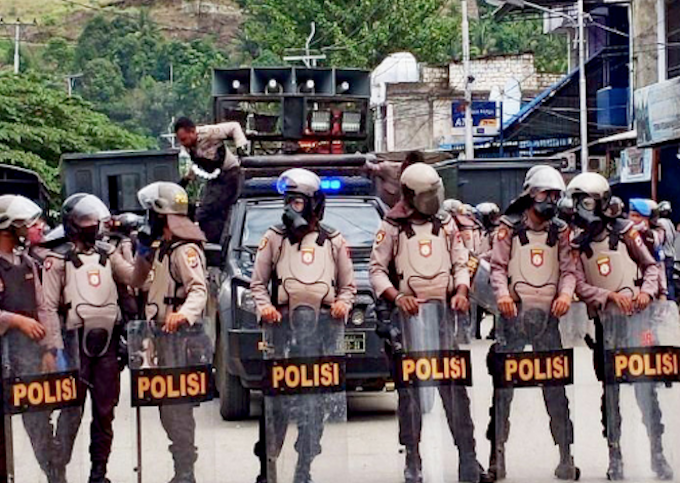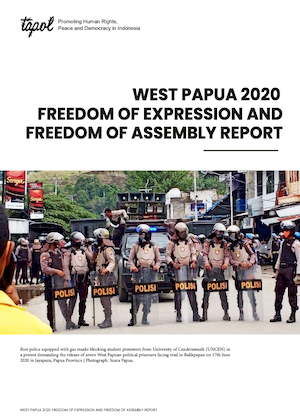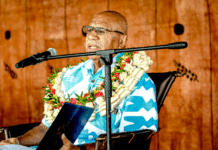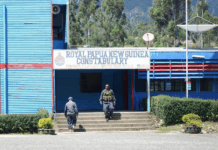
Asia Pacific Report newsdesk
The Indonesian government has used the covid-19 pandemic as a pretext to crack down on West Papuan street protests and to impose online censorship, according to new research published by the human rights watchdog TAPOL.
Covid-19 protocols have given more power to the police and military to crush protests but they are not fairly implemented across Indonesia in general.
Peaceful demonstrators, student activists, West Papuan and Indonesian political activist groups, human rights lawyers and defenders and individual civilians experienced extreme repression during 2020 in West Papua and outside West Papua.
- READ MORE: The full West Papua 2020 report
- Facebook censorship on West Papua – then deafening silence
- Other West Papua reports

The findings are in a new study, the West Papua 2020: Freedom Of Expression And Freedom Of Assembly Report, in which TAPOL has collated and analysed incidents recorded by West Papuan and Indonesian civil society organisations.
The report includes specific recommendations for the Indonesian government and the international community.
“Online and offline repression in 2020 left almost no space in which West Papuans, or West Papua-related issues, or protest in general, could be freely conducted,” said Pelagio Doutel of TAPOL.
Doutel called on the Indonesian government to desist from using its own covid-19 protocols to stop free expression, especially treason charges which were in almost all cases “disproportionate” to alleged offences.
Call to uphold human rights
He also called on international groups to ensure that the Indonesian government fulfilled its legal obligations by upholding human rights and not arbitrarily criminalising West Papuans.
The report details repression, consisting of arbitrary dispersals, arbitrary arrests, terror and intimidation, internet shutdowns or cyber attacks against those speaking out in support of West Papua’s self-determination and against the Indonesian government’s treatment of West Papuans.
The Indonesian police and military were responsible for most of the repression but some actions were carried out by Indonesian right-wing reactionary militias, academic institutions and civilian administrative authorities.
Regions such as West Papua have seen increasing numbers of the security forces deployed on the streets.
Security forces arrested as many as 443 people. Of this number, 297 were arrested in West Papua, with 146 people arrested outside West Papua.
The authorities charged 18 people with treason, all of whom were West Papuans.
Various arbitrary dispersals took place during protests about West Papua, with dozens of intimidation and harassment incidents taking place before and during protest dispersals.
Intimidation and harassment
Intimidation and harassment also took place online.
Many West Papua-related public discussions that were held online were attacked by unknown individuals with the intention of disrupting them, and event speakers received intimidating phone calls and threatening messages.
Protests in West Papua continued in 2020 due to ongoing issues of political prisoners, arrested during 2019, and the renewal of the special autonomy law (otsus, otonomi khusus) in West Papua.
Protests against the Omnibus Law were also held in Indonesia in general, including in West Papua.
Trials of several high profile Papuan political prisoners from the 2019 West Papua Uprising took place at the beginning of 2020.
As a result, many street protests and public discussions were held to support and demand the release of political prisoners.















































